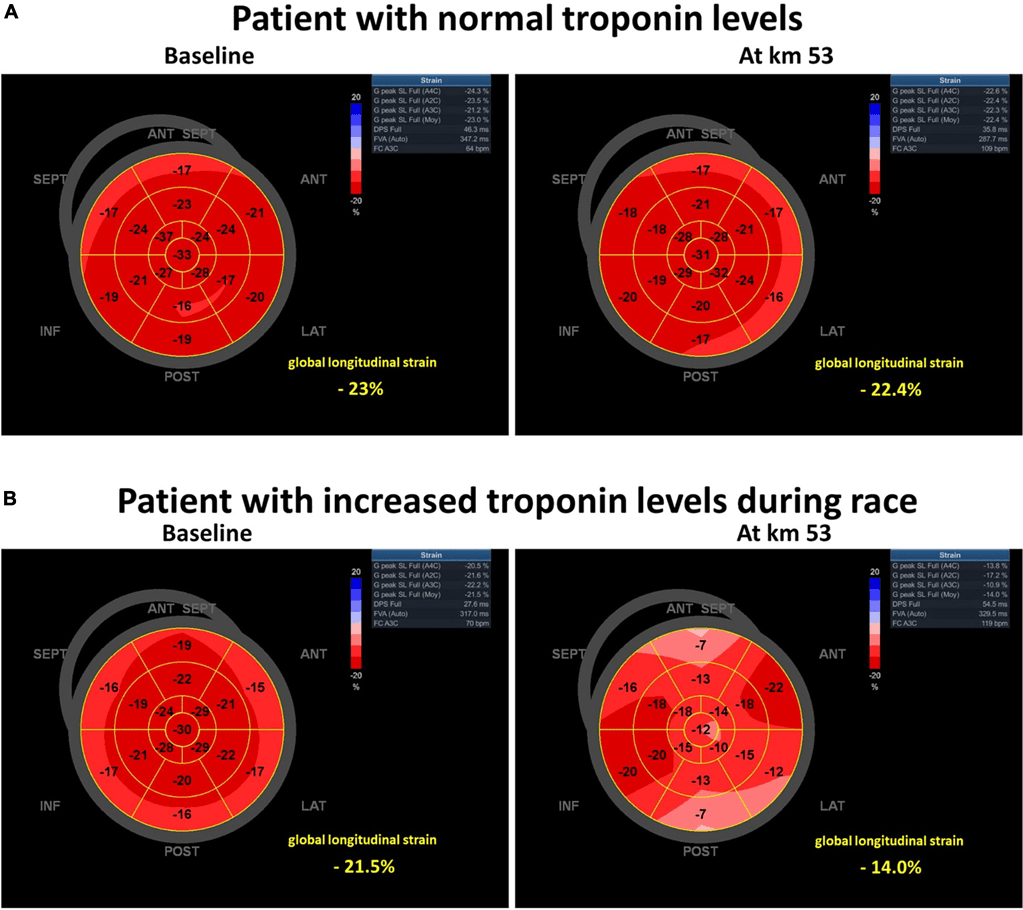By Dr Timothy Swinn
A recent study published in Frontiers in Cardiovascular medicine prospectively followed endurance trail runners to establish correlation between cardiac biomarkers and echocardiographic features during endurance exercise1. It has previously been observed that cardiac biomarkers Troponin-T and NT-proBNP can become elevated during exercise however the full significance and mechanism remain unclear.
Jouffroy and their co-authors recruited 20 trained amateur runners (all male and with no cardiovascular history) tackling the 80km Ecotrail of Paris trail race. Participants underwent blood sampling and echocardiography before the start (0km), at refreshment stations (21 and 53km) and within 15 minutes of the finish (80km). The investigators found that all participants had a raised troponin-T (>14ng/l) by 21km and this was significantly correlated with a decline in echocardiographic systolic parameters from 53km onwards. Specifically, participants with a troponin-T above the median for the group showed a decline in mitral s-wave and global longitudinal strain (see figure 1). NT-proBNP progressively rose throughout the race but remained below the diagnostic threshold of 300ng/l. This was associated with a decline in diastolic parameters (mitral E/A ratio and mitral TDI e’ wave) from 21km to the end. Another recent study from the same authors2 suggests that this exercise-induced cardiac injury is transient and without long-term alteration in left ventricular function.
This study provides some insight into the function significance of biomarker rises during exercise. It is limited by the small participant number and lack of additional relevant variables (for example runner speed, mean heart rate and hydration status), however further research in this area and greater understanding of the effects of endurance exercise on cardiac function could lead to significant benefits for both athletes and clinicians.
Figure 1
Figure used from Jouffroy et al. 20221 demonstrating the decline in global longitudinal strain associated with raised troponin-T in endurance trail runners.

References
- Jouffroy R, Hergault H, Antero J, Vieillard Baron A, Mansencal N. Relationship between echocardiographic characteristics and cardiac biomarkers during long-distance trail running. Front Cardiovasc Med [Internet]. 2022 [cited 2022 Aug 16];9. Available from: https://www.frontiersin.org/articles/10.3389/fcvm.2022.954032
- Jouffroy R, Benaceur O, Toussaint JF, Antero J. Echocardiographic Assessment of Left Ventricular Function 10 Years after the Ultra-Endurance Running Event Eco-Trail de Paris® 2011. Int J Environ Res Public Health. 2022 Jul 6;19(14):8268. (edited)

